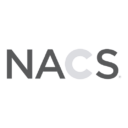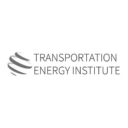Why should merchants work with W. Capra on their Fraud Management program?
All merchants in 2024 are concerned about and have plans in place to manage fraud related to their consumer payments […]
What’s In Store for Retail: Industry Trends to Watch
As uncertainty around the state of the economy lingers due to inflation, retailers need to be thinking about how they […]
What Merchants Need to Know About the Visa / Mastercard Settlement
Though there are multiple class action lawsuits in place against the card brands, the particular litigation addressed in last week’s […]
What does it take to be a successful Merchant of Record?
Many enterprise merchants in recent years, in particular QSR chains and Convenience & Energy Retailing companies, have become the Merchant of Record (MoR) for their franchisees. In an earlier article, we explained what it means to be a Merchant of Record. Here, we’ll explain the profile of companies that might benefit from the MoR path and how to set yourself up for success.
When Should a Merchant Be Merchant of Record?
The biggest benefit to becoming the Merchant of Record is the opportunity to optimize payment operations and standardize the customer experience. As technology has evolved, so has the need to optimize transaction flows across channels of commerce, control costs, and improve resiliency.
What Does the New Interchange Legislation Mean For You?
A growing number of states have recently introduced legislation to prohibit charging interchange fees on the sales and excise tax portion of retail transactions. Thus far, there are active bills in the states of Georgia, Florida, Idaho, North Dakota, and Texas, however that number is expected to grow in the near-term future.
Keeping an eye on Credit Cards in Congress
Should the CCCA bill pass, there will certainly be available savings on credit card fees from the forced competition, but this will also require significant planning. Adding a second routing option is not as easy as just toggling a switch.
What is a Payment Account Reference (PAR) and why does it matter to merchants?
In recent years, the concept of a Payment Account Reference (PAR) has emerged as a way of identifying customers without […]
Want to stay in touch? Subscribe to the Newsletter















